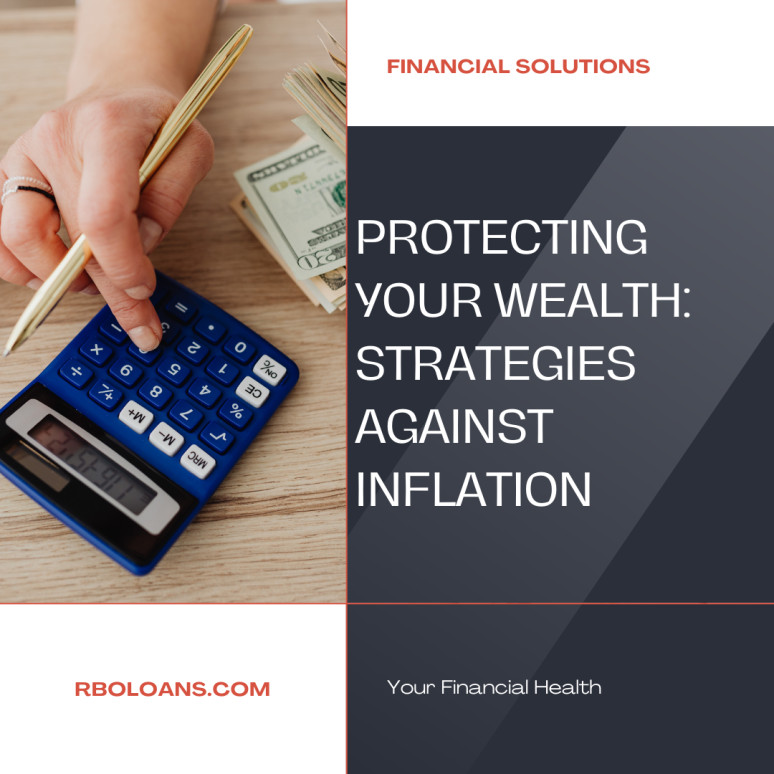Protecting Your Wealth: Strategies Against Inflation

In today's ever-evolving economic landscape, protecting your wealth against the erosive force of inflation is more crucial than ever. For many in the UK, understanding how to safeguard financial assets against the diminishing purchasing power of money remains a top priority.
Understanding Inflation
What is Inflation?
Inflation indicates the pace at which the overall price level of goods and services increases, leading to a reduction in buying power. Essentially, a pound today might not hold the same value tomorrow. Understanding this economic principle is the first step towards effective wealth protection.
Causes of Inflation
The roots of inflation are multifaceted, involving factors like government policy, supply and demand dynamics, and global economic conditions. In the UK, historical events, such as the 1970s oil crisis, have shown how external factors can spur inflation, impacting savings and the overall economy.
Impact on Savings and Investments
Over time, inflation can significantly diminish the value of savings and fixed-income investments. For instance, if inflation averages 3% annually, the purchasing power of £100,000 will reduce to less than £74,000 in 10 years. Recognizing this impact is critical for anyone looking to maintain, if not grow, their wealth over time.
Assessing Your Financial Vulnerability
Evaluating Financial Health
Assessing your financial vulnerability to inflation involves a thorough review of your assets, liabilities, and overall financial goals. Identifying which parts of your portfolio are most at risk from inflation is an essential step in developing a strategy to mitigate these risks.
Inflation-Sensitive Assets
Certain assets, like cash savings or fixed-income investments, are more vulnerable to inflation than others. Understanding the composition of your portfolio can highlight areas that require attention to protect against inflationary pressures.
The Importance of Diversification
Diversification across different asset classes can reduce the risk of significant losses due to inflation. By spreading investments across assets like stocks, bonds, real estate, and commodities, you can create a more resilient financial portfolio.
In the next sections, we will delve deeper into specific strategies for protecting your wealth from inflation, including investment options and practical steps to implement these strategies in your daily life. Stay tuned as we explore how to secure your financial future against the backdrop of an unpredictable economic environment.
Strategies for Protecting Wealth Against Inflation
Investment in Real Assets
- Property and Real Estate: Historically, real estate has been a reliable hedge against inflation. Property values and rental income typically rise with inflation, making real estate investments a solid choice for protecting your wealth. In the UK, investing in property can also offer tax advantages, further enhancing its appeal as an inflation-resistant asset.
- Gold and Other Precious Metals: Gold has long been considered a safe haven in times of economic uncertainty. Its value often increases in response to inflationary pressures, serving as a protective buffer for your portfolio. Other precious metals, like silver and platinum, can also provide similar benefits, though their markets are more volatile.
Treasury Inflation-Protected Securities (TIPS) and Similar Instruments
TIPS represent government securities crafted to safeguard against inflation. The principal value of TIPS increases with inflation and decreases with deflation, which is reflected in the interest payments that investors receive. For UK investors, similar instruments like Index-linked Gilts offer protection against inflation, as their value adjusts according to the Retail Price Index (RPI).
Diversifying Investment Portfolios
- Stocks: Equities can offer protection against inflation since many companies have the ability to pass on higher costs to consumers. Investing in a diversified portfolio of stocks, particularly those in sectors less sensitive to economic downturns, can provide growth potential that outpaces inflation over time.
- Bonds: While fixed-rate bonds can lose value in an inflationary environment, floating-rate bonds and short-duration bonds may offer some protection. These instruments adjust their interest payouts based on current rates, making them less sensitive to inflation.
- Commodities: Including commodities like oil, gas, and agricultural products in your portfolio can offer a hedge against inflation. Their prices tend to rise when inflation increases, providing a natural counterbalance to other inflation-sensitive investments.

Savings Accounts with Favorable Interest Rates
High-interest savings accounts and fixed-rate bonds can offer better protection against inflation than standard savings accounts. Look for financial institutions offering rates that aim to outpace inflation, ensuring your savings maintain their purchasing power over time.
Alternative Investments
- Cryptocurrencies: While highly volatile, some view cryptocurrencies as modern tools for wealth protection. Their market value can be independent of traditional economic factors that drive inflation.
- Art and Collectibles: Investing in art, antiques, or collectibles can provide long-term appreciation potential that outpaces inflation. However, these investments require significant knowledge of the market and should be approached with caution.
Retirement Planning Adjustments for Inflation
Adjusting your retirement savings strategy to account for inflation is crucial. This may involve increasing your savings rate, investing in inflation-protected retirement accounts, or revising your investment mix to include more inflation-resistant assets.
Practical Steps to Implement Today
Review and Rebalance Your Investment Portfolio Regularly
Regularly reviewing and rebalancing your portfolio ensures that it remains aligned with your inflation-protection strategy and financial goals. This process involves assessing your current asset allocation and making adjustments to maintain the desired level of risk and exposure to inflation-resistant investments.
Increase Your Financial Literacy
Staying informed about financial markets, economic trends, and investment strategies is essential for making educated decisions about protecting your wealth. Consider subscribing to financial news outlets, reading books on personal finance, and attending workshops or seminars.
Consult with a Financial Advisor
A financial advisor can provide personalized advice based on your financial situation, goals, and risk tolerance. They can help you develop a comprehensive strategy for inflation protection and assist with portfolio management.
Budgeting and Saving Strategies
Implementing a rigorous method for managing finances and savings can fortify your economic base, facilitating resilience against inflationary forces. Focus on creating a budget that prioritizes savings and investing, and consider establishing an emergency fund to cover unforeseen expenses.
Future-Proofing Your Wealth
Staying Informed About Economic Trends and Forecasts
The ability to anticipate changes in the economic landscape can provide a significant advantage in protecting your wealth. Regularly monitoring economic indicators, market trends, and inflation forecasts can help you adjust your investment strategies in a timely manner. In the UK, staying updated with reports from the Bank of England and financial news outlets can offer insights into potential inflationary trends and their implications for your financial planning.
Continuous Education on Financial Protection Strategies
The finance sector is in a perpetual state of flux, characterized by the introduction of novel products, techniques, and regulatory measures. Engaging in continuous education through online courses, financial webinars, and seminars can keep you abreast of the latest tools and techniques for inflation protection. Joining financial forums and communities can also provide valuable perspectives and advice from fellow investors and financial experts.
The Role of Insurance in Wealth Protection
Insurance plays a pivotal role in safeguarding your assets against unexpected events. Property, health, and life insurance can mitigate the financial impact of adverse situations, preserving your wealth for future needs. Additionally, considering insurance products that offer inflation protection clauses can ensure that your coverage remains adequate over time, despite rising costs.
Conclusion
To guard your assets against inflation demands an active and knowledgeable strategy. By understanding the nature of inflation and its effects, assessing your financial vulnerability, and implementing a diverse set of strategies, you can safeguard your assets against the eroding impact of rising prices. Investing in real assets, diversifying your investment portfolio, and staying educated on financial trends are key components of a robust inflation protection strategy. Additionally, practical steps such as regular portfolio reviews, financial literacy enhancement, and consultations with financial advisors can empower you to make informed decisions and adapt to changing economic conditions.
As we conclude, remember that the journey to securing your financial future is ongoing. The strategies outlined in this guide serve as a foundation upon which to build and refine your approach to wealth protection. By staying informed, adaptable, and proactive, you can navigate the challenges of inflation and preserve the value of your wealth for years to come.

-small.jpg)
-small.jpg)

-small.jpg)
-small.jpg)